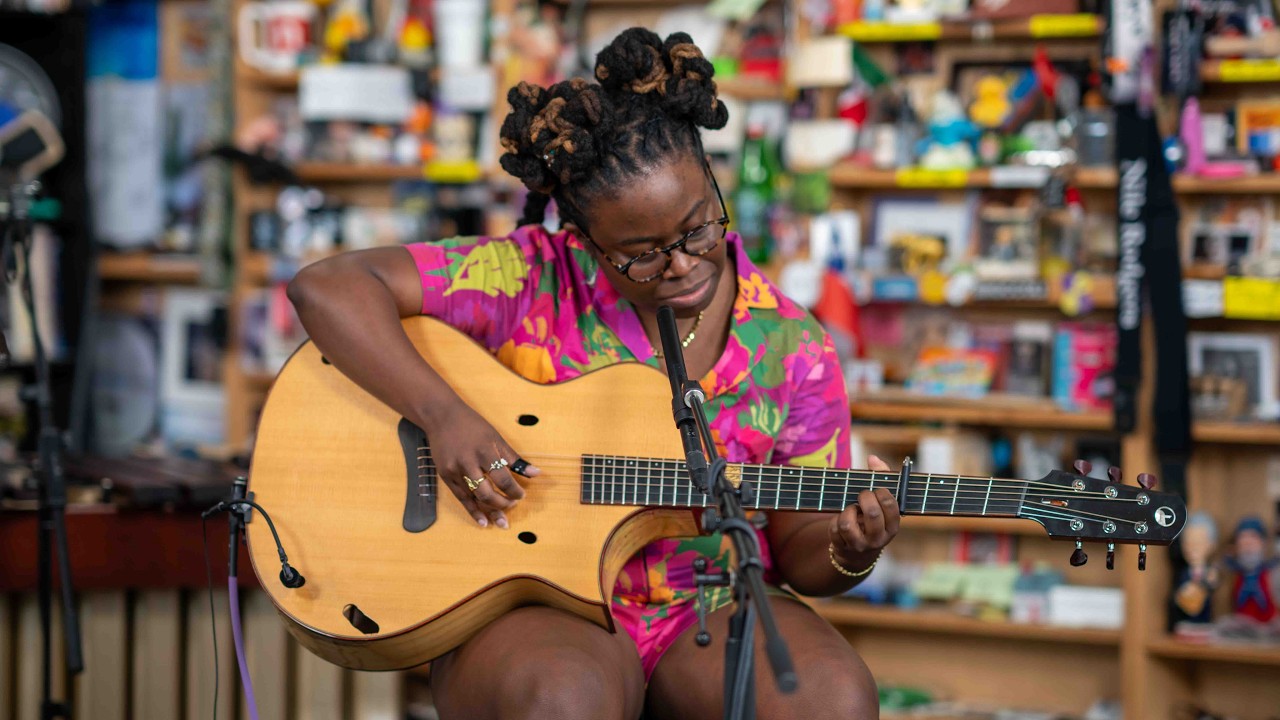There’s no doubt Yasmin Williams’ inventive style of playing guitar – in a percussive, often, arpeggiated style built around hammer-ons and pull-offs, all while seated with an acoustic positioned on her lap – is the first thing to catch the eye of guitar players. But the sound itself is the truly mesmerizing part.
“I wanted to experiment,” Williams tells Guitar World of her approach. “I used different gadgets I found around my parents’ house to make the guitar sound different. I used a few hammers – I don’t recommend that. I used a frother to get a sustained sound on the strings.
“It took me a little while to get comfortable and play as fast as I wanted to play and do the percussion stuff, but (then it became) how I played guitar most of the time.”
Acadiaher third album, finds Williams expanding her trademark style and sound, collaborating with outside artists on instrumentals and band arrangements with vocals, as well as adding electric guitar to the mix on songs like Nectar and Okaywhere she trades solos with a saxophone.
Fellow acoustic-guitar virtuoso Kaki King duets with Williams on the cascading harmonics and pastoral fingerpicked passages of Harvestwhile Carolina Chocolate Drops co-founder Dom Flemons plays rhythm bones on opener Cliffwalk. Banjoist Allison De Groot and fiddler Tatiana Hargreaves double her guitar melody on the sunny bluegrass jam Hummingbird.

But the fearless instrumentation choices aren’t the only liberating part of her sound. She eschews conventional verse-chorus-verse song structures, leaving her open to chart her own musical territory.
Ax-ology
GUITARS
Skytop acoustic, Timberline parlor harp guitar, Epiphone ES-339 and a doubleneck
AMPS
Marshalls, Neural DSP amp modeler
“Early on in my playing career, I was more bound to a kind of pop-song structure. That’s just the music I grew up on,” she says. “I’m definitely more comfortable with just seeing where a song ends up (now), not being afraid of key changes, not being afraid of tempo changes, not being afraid of silence – to let things unfold in an organic, natural way.”
Ultimately, the point of her unconventional playing style, adventurous instrumentation and lack of guardrails is to find new horizons in folk music.
“My goal was to show people how folk can expand to embrace other influences, such as kora music of West Africa and rock music and jazz, and still be a folk record,” she explains. “Because folk, to me, is just the people’s music.”
- Acadia is out now via Nonesuch.
GIPHY App Key not set. Please check settings